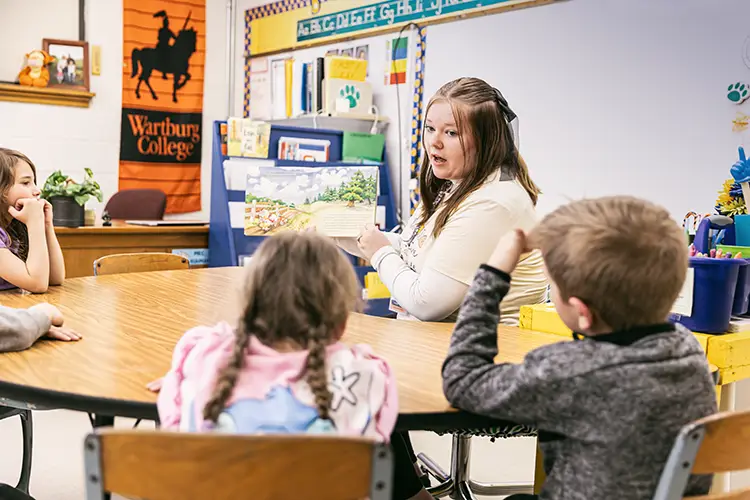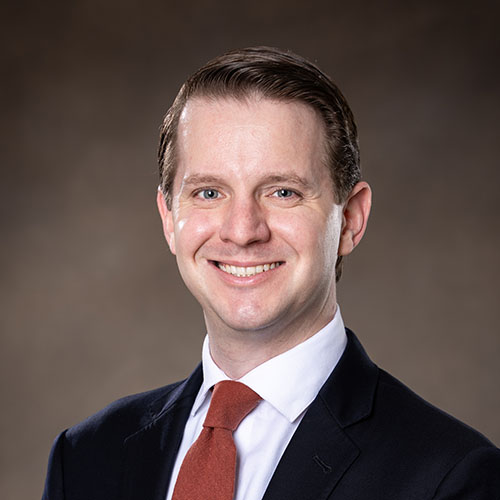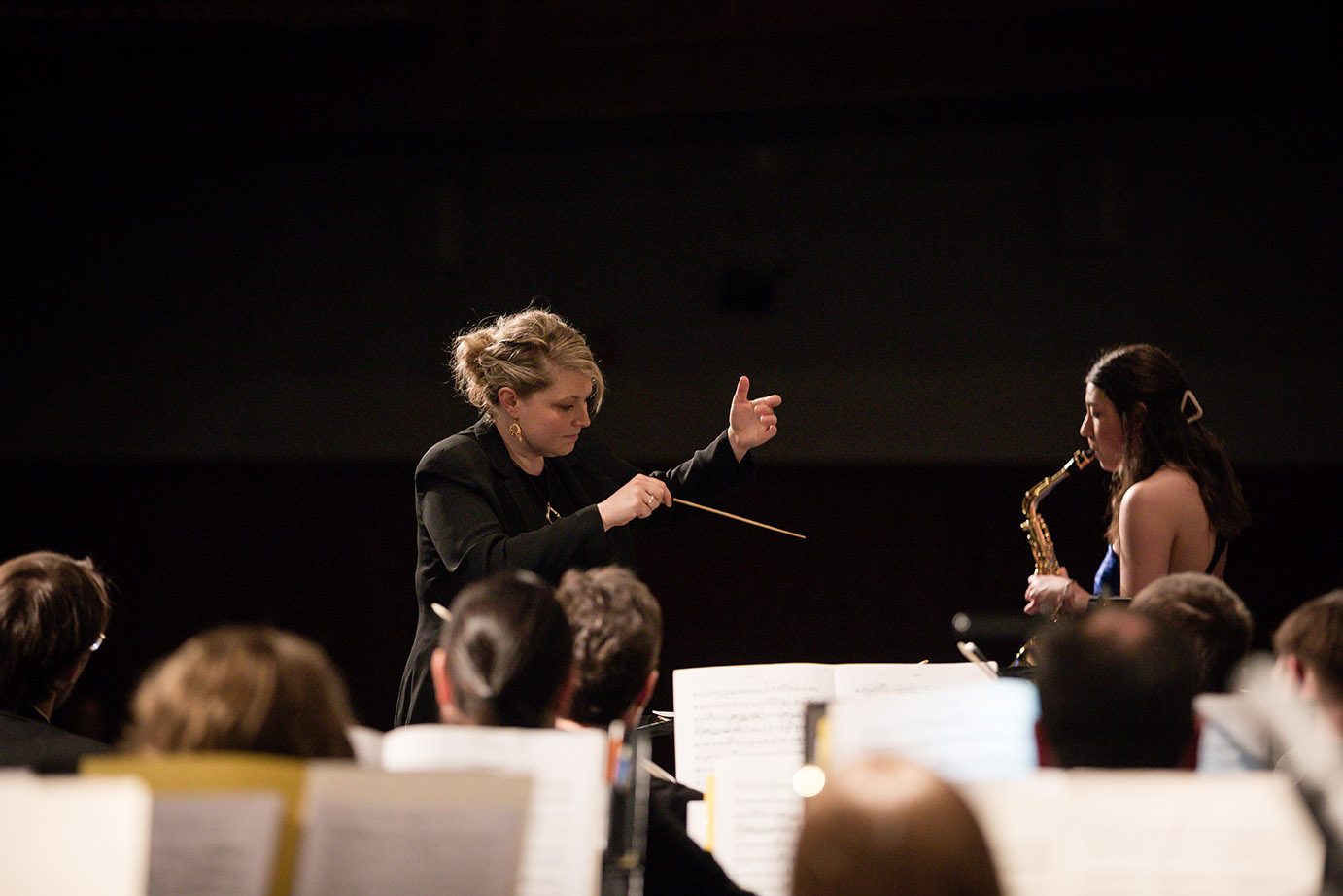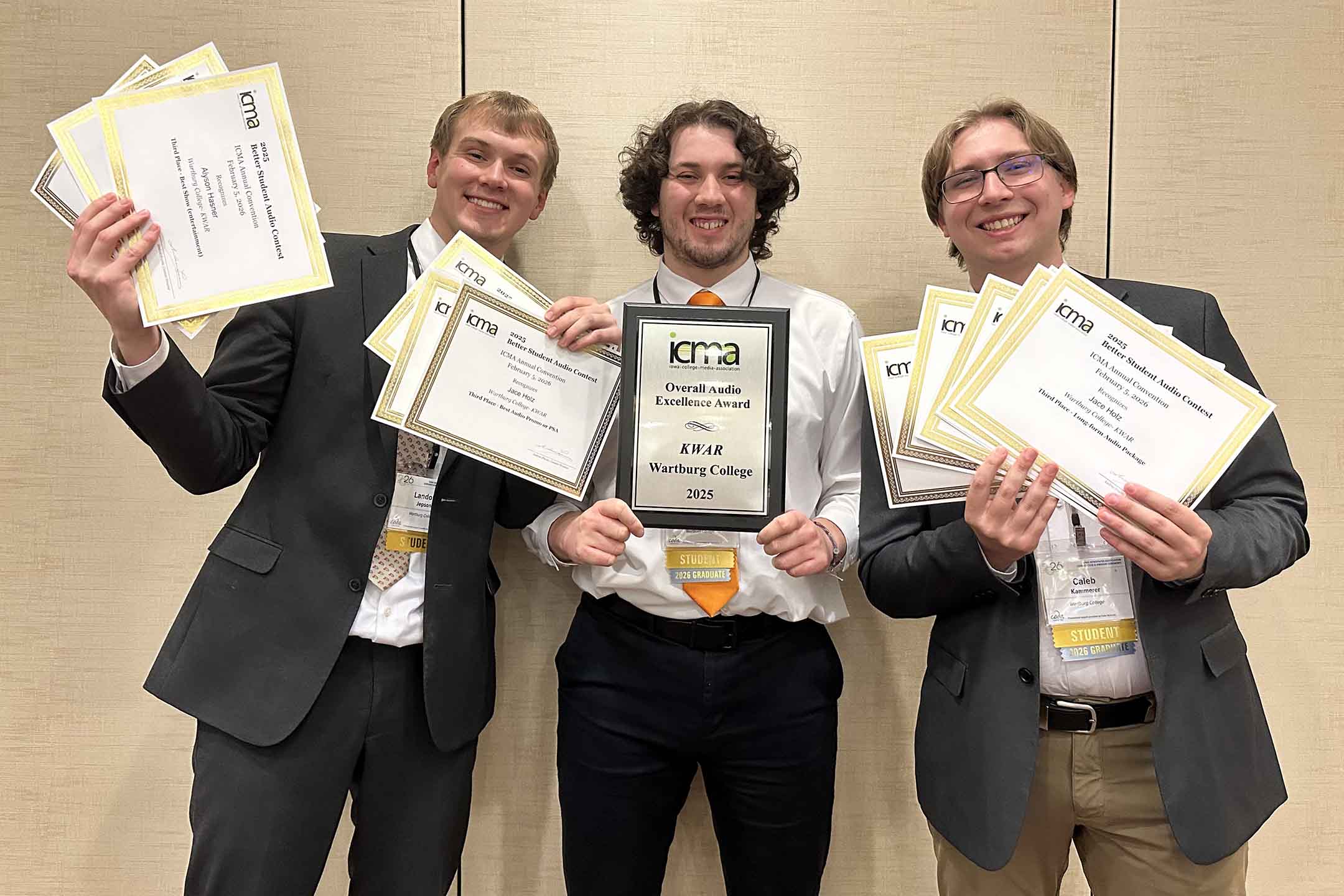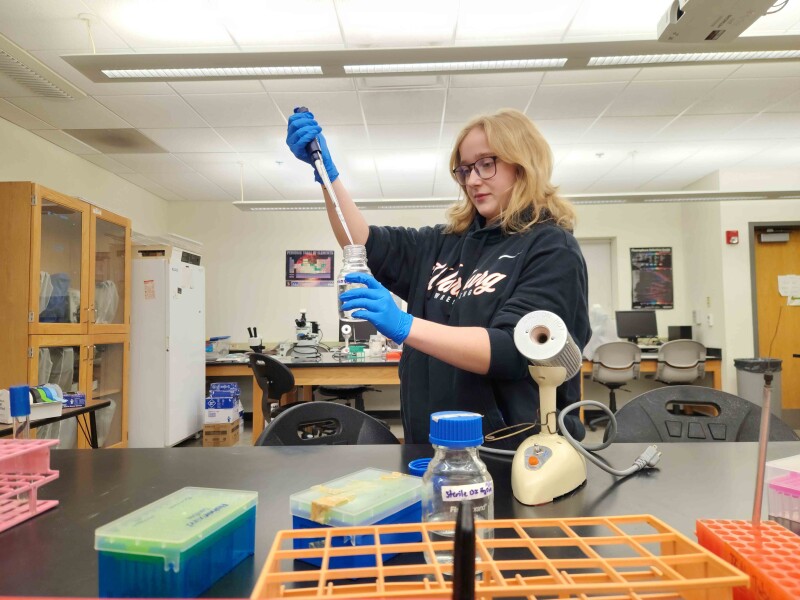
Rachel Bender’s passion for scientific discovery knows no bounds. As a neuroscience major at Wartburg, she’s immersed herself in research opportunities on campus and beyond, including a prestigious 10-week summer research program at Johns Hopkins University.
Bender, the outstanding senior in neuroscience, began conducting research during her first year on campus. That early exposure gave her the tools and the confidence she needed to thrive in a highly competitive research environment.
“I was a little bit nervous and intimidated going into it because a lot of my cohort were students from larger universities. I thought maybe they had more background knowledge than I had or maybe I wasn’t as prepared as they were, but the research that I’ve done in my classes with Dr. Cole Davidson and Dr. Stephanie Toering Peters prepared me rely on myself as a scientist,” said Bender. “My experiences at Wartburg gave me the ability to trust in myself as I went into this research.”
In the Johns Hopkins lab, Bender worked with Caenorhabditis elegans, a microscopic worm used to model human neurological functions. In her work, Bender tried to determine if the worms could be used as a model animal for future research, like how mice are currently used.
Back on campus, Bender is involved in a research project looking for new treatments for glioblastoma, an aggressive form of brain cancer. She also shares her love for science as president of BRAiNS, the student-led neuroscience club.
“If you like the brain, we’re your kind of people,” said Bender. “I’ve gotten to do a lot of community outreach through science fairs where I talk to little kids and their families about the brain. This organization has also helped get freshmen and sophomores learning about neuroscience and how it can apply to their future careers.”
Not only has BRAiNS been beneficial for kids and other students, but Bender also found purpose in leading it.
“This organization has been a valuable thing for me because scientific communication has become a large goal of mine in the future. I want to figure out how science and fancy research papers can be put into words that most people can understand,” said Bender.
That goal aligns perfectly with her dream job: becoming a neuroscience professor — ideally at a small college like Wartburg.
“The group dynamics of BRAiNS gave me the knowledge that I’m good at talking with people about science and I know those are skills that I can carry into being a professor,” she said.
Bender also serves as a supplemental instructor for organic chemistry, which has given her a great starting point in figuring out how to lecture, guide students through a difficult course, and provide moral support.
“When I was in high school, I was very very interested in psychology, but I was only aware of the psychiatry route,” said Bender. “As I explored at Wartburg, I found that pursuing a Ph.D. was an option, and I thought that I could help many more people in a way that was more suited to my skills through pursuing a Ph.D. and becoming a neuroscience professor rather than a psychiatrist.”
One group of people on campus have consistently aided Bender in planning for her future.
“Wartburg professors, specifically Dr. Larimer, have really been a great resource for me. She rallied my passion for neuroscience and has given me a mentor and someone to model my own future after,” said Bender.
Share

